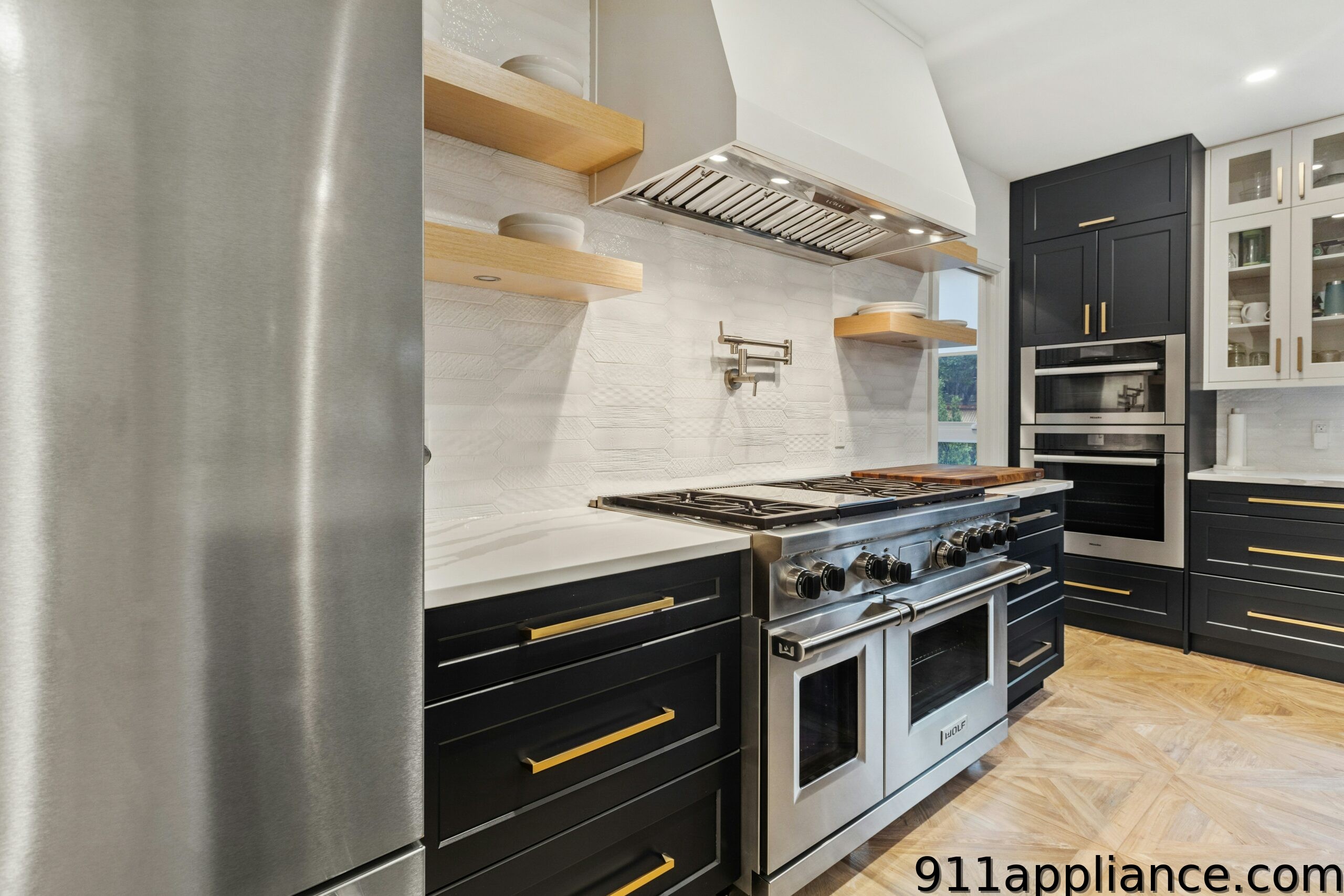Choosing the right appliances for your home is an important decision that can greatly impact your daily life. Appliances are essential for our everyday tasks, from cooking and cleaning to keeping our food fresh and our clothes clean. With so many options available on the market, it can be overwhelming to make the right choice. However, by considering various factors such as energy efficiency, cost, brand reputation, and functionality, you can make informed decisions that will enhance your home appliance experience.
Table of Contents
- Key Takeaways
- Factors to Consider when Buying Appliances
- Real-Life Examples of Appliance Decision-Making Scenarios
- Balancing Cost and Quality in Appliance Shopping
- Energy Efficiency and Sustainability in Appliance Choices
- The Role of Technology in Appliance Decision-Making
- Appliance Maintenance and Repair Considerations
- Appliance Upgrades and Replacement Strategies
- Making Informed Decisions for a Better Home Appliance Experience
- What are some real-life scenarios where repairing or replacing an appliance is a tough decision?
- FAQs
- What is the article about?
- What are some common appliance decision-making scenarios?
- What factors should be considered when making appliance decisions?
- How can I determine the energy efficiency of an appliance?
- What should I do if my appliance breaks down?
- What are some tips for selecting the best appliance for my needs?
Key Takeaways
- Appliance decision-making scenarios can be overwhelming, but understanding your needs and budget can help narrow down options.
- When choosing appliances for your home, consider factors such as size, features, and energy efficiency to find the best fit.
- Real-life examples of appliance decision-making scenarios can provide insight into common challenges and solutions.
- Balancing cost and quality is important when shopping for appliances, but don’t forget to consider long-term savings from energy efficiency.
- Technology can play a role in appliance decision-making, but it’s important to weigh the benefits against the cost and complexity.
Choosing the Right Appliance for Your Home
Understanding your needs and preferences is crucial when selecting appliances for your home. Take into account the size of your household, your cooking habits, and your lifestyle. For example, if you have a large family and cook frequently, you may want to invest in a spacious refrigerator and a high-capacity oven. On the other hand, if you live alone and rarely cook, a smaller refrigerator and a compact oven may be more suitable.
Additionally, consider the design and style of the appliances. They should complement the overall aesthetic of your home and fit seamlessly into your kitchen or laundry room. Take measurements of the available space to ensure that the appliances will fit properly.
Factors to Consider when Buying Appliances
1. Energy efficiency and sustainability: Energy-efficient appliances not only help reduce your carbon footprint but also save you money on utility bills in the long run. Look for appliances with high Energy Star ratings, which indicate that they meet strict energy efficiency standards.
2. Cost and quality: While it’s tempting to go for the cheapest option, it’s important to consider the quality of the appliance as well. Investing in a high-quality appliance may cost more upfront but can save you money on repairs and replacements in the future.
3. Brand reputation and customer reviews: Research different brands and read customer reviews to get an idea of their reputation and reliability. Look for brands that have a track record of producing durable and long-lasting appliances.
4. Size and capacity: Consider the size and capacity of the appliance to ensure it meets your needs. For example, if you have a large family, you may need a washer and dryer with a larger capacity to handle larger loads.
5. Features and functionality: Think about the features and functionality that are important to you. Do you want a refrigerator with a water dispenser? Do you need a dishwasher with different wash cycles? Make a list of the features that are essential and prioritize them when making your decision.
Real-Life Examples of Appliance Decision-Making Scenarios
To better understand the factors that influence appliance decisions, let’s look at some real-life examples:
1. Case study 1: Sarah is a busy working mom with two young children. She needs a dishwasher that can handle heavy loads and has different wash cycles to accommodate different types of dishes. Sarah also values energy efficiency and wants an appliance that will help reduce her utility bills.
Based on her needs, Sarah researches different brands and reads customer reviews to find a dishwasher that meets her requirements. She ultimately chooses a reputable brand with high Energy Star ratings and positive customer feedback.
2. Case study 2: John is a single professional who loves cooking. He wants a high-quality oven with advanced features such as convection cooking and precise temperature control. John also values the aesthetics of his kitchen and wants an oven that will enhance the overall design.
John visits appliance showrooms to see different ovens in person and get a feel for their functionality. He chooses an oven from a well-known brand known for its quality and innovative features. The sleek design of the oven also complements his modern kitchen.
Balancing Cost and Quality in Appliance Shopping
When shopping for appliances, it’s important to find the right balance between cost and quality. While it may be tempting to go for the cheapest option, low-quality appliances may end up costing you more in the long run due to repairs and replacements.
To find the right balance, consider your budget and prioritize the features and functionality that are most important to you. Look for appliances that offer good value for money and have positive customer reviews. It’s also worth considering purchasing extended warranties or service plans to protect your investment.
Energy Efficiency and Sustainability in Appliance Choices
Energy-efficient and sustainable appliances not only benefit the environment but also save you money on utility bills. When shopping for appliances, look for those with high Energy Star ratings, which indicate that they meet strict energy efficiency standards.
Energy-efficient appliances use less energy to perform the same tasks as their less efficient counterparts. This not only reduces greenhouse gas emissions but also lowers your energy bills. Additionally, sustainable appliances are made from eco-friendly materials and are designed to have a minimal impact on the environment throughout their lifecycle.
The Role of Technology in Appliance Decision-Making
Technology has greatly influenced the world of appliances, offering innovative features and functionalities that enhance our daily lives. From smart refrigerators that can create shopping lists to washing machines with advanced sensors that optimize water usage, high-tech appliances offer convenience and efficiency.
However, it’s important to consider the pros and cons of high-tech appliances before making a decision. While they can make our lives easier, they may also come with a higher price tag and a steeper learning curve. Additionally, consider the reliability of the technology and whether it is likely to become outdated quickly.
Appliance Maintenance and Repair Considerations
Regular maintenance and repair are essential for keeping your appliances running smoothly and extending their lifespan. It’s important to follow the manufacturer’s guidelines for maintenance, such as cleaning filters or coils regularly.
When it comes to repairs, it’s crucial to find reliable repair services. Look for authorized service centers or technicians who specialize in the brand and model of your appliance. Read customer reviews and ask for recommendations to ensure that you are getting quality service.
Appliance Upgrades and Replacement Strategies
Knowing when to upgrade or replace your appliances is important for maintaining an efficient and functional home. While appliances can last for many years, there may come a time when they become outdated or start to break down frequently.
Consider factors such as the age of the appliance, the cost of repairs, and the availability of replacement parts. If your appliance is old and repairs are becoming costly, it may be more cost-effective to replace it with a newer model.
When selecting new appliances, consider how your needs may have changed since you last purchased appliances. For example, if you have started a family, you may need a larger refrigerator or a washer and dryer with a larger capacity.
Making Informed Decisions for a Better Home Appliance Experience
To make informed decisions when choosing appliances for your home, consider the factors discussed in this article. Understand your needs and preferences, research different brands, read customer reviews, and prioritize features and functionality.
Balance cost and quality by finding appliances that offer good value for money and have positive customer feedback. Consider energy efficiency and sustainability to reduce your carbon footprint and save on utility bills. Evaluate the role of technology in appliances and decide whether high-tech features are worth the investment.
Lastly, prioritize regular maintenance and find reliable repair services to keep your appliances running smoothly. Know when to upgrade or replace appliances based on their age, repair costs, and changing needs.
By considering these factors and making informed decisions, you can enhance your home appliance experience and enjoy the convenience and efficiency that modern appliances offer.
What are some real-life scenarios where repairing or replacing an appliance is a tough decision?
When facing a repair or replace malfunctioning appliance decision, the cost of repair versus a new purchase is crucial. For older appliances, finding replacement parts can be difficult. Sometimes repairs are only temporary fixes, but buying new can be costly. Balancing functionality and budget is always a tough call.
FAQs
What is the article about?
The article is about real-life decision-making scenarios related to household appliances.
What are some common appliance decision-making scenarios?
Some common appliance decision-making scenarios include choosing between different types of refrigerators, deciding whether to repair or replace a broken appliance, and selecting the best washing machine for your needs.
What factors should be considered when making appliance decisions?
Factors that should be considered when making appliance decisions include cost, energy efficiency, size and capacity, features and functions, and brand reputation.
How can I determine the energy efficiency of an appliance?
You can determine the energy efficiency of an appliance by looking for the Energy Star label, which indicates that the appliance meets certain energy efficiency standards set by the U.S. Environmental Protection Agency.
What should I do if my appliance breaks down?
If your appliance breaks down, you should first determine whether it is still under warranty. If it is not, you should consider the cost of repairing the appliance versus the cost of replacing it.
What are some tips for selecting the best appliance for my needs?
Some tips for selecting the best appliance for your needs include researching different brands and models, reading reviews from other consumers, and considering your specific needs and preferences.



